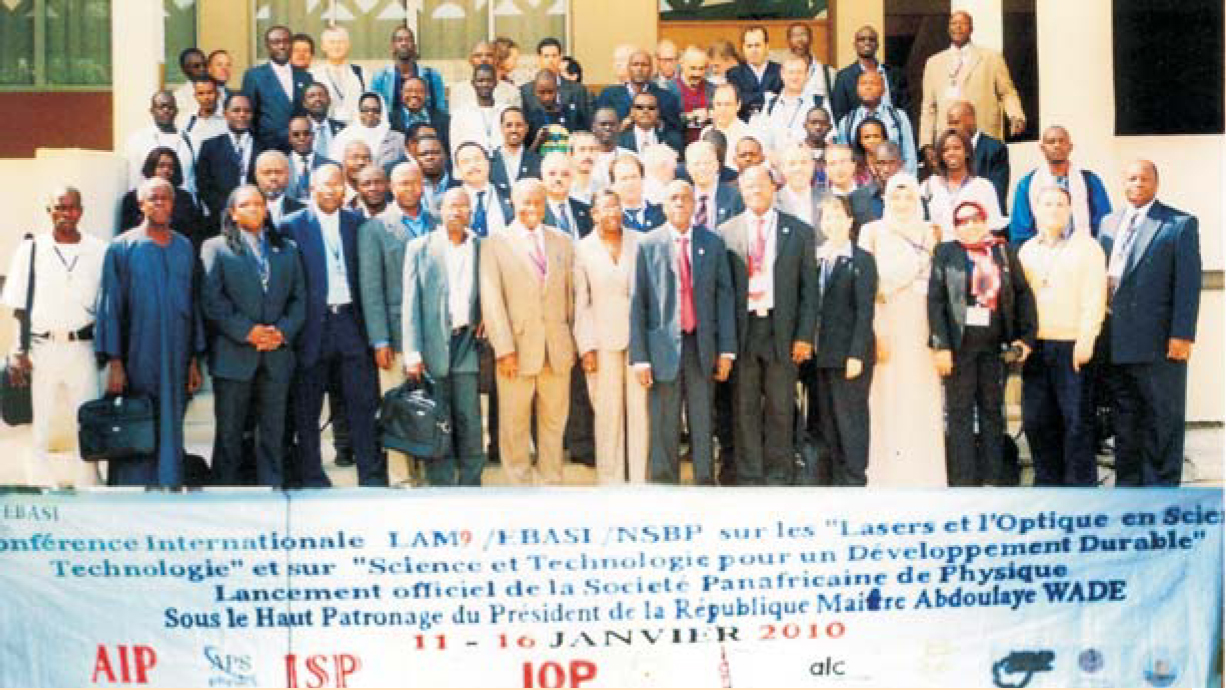A voice for Africa’s physicists
DOI: 10.1063/1.3366231
On 12 January in Dakar, Senegal, some 110 physicists from 20 African countries joined with 10 national African physical societies to launch the African Physical Society with the help of several international physical societies (see photo). The AfPS takes the place of a combined math and physics association. “This will give more of a focus on physics and give us a continental voice,” says Akin Adedoyin, an atmospheric physicist at the University of Botswana and the new organization’s general secretary.

AFRICAN PHYSICAL SOCIETY

The AfPS will be an umbrella “so we can find out what others are doing and help each other,” says Adedoyin. “Let’s say I have some equipment and my colleague in Rwanda wants to use it. We can find a way to bring him to Botswana to do research.” On a more formal level, the AfPS will set up commissions to explore physics aspects of issues such as energy, water, and climate, adds physicist Paul Woafo, vice dean of research and cooperation at the University of Yaoundé I in Cameroon and one of five AfPS vice presidents. The new society will also work to increase funding for physics research and training and to form networks of physicists across the continent who could, among other things, collaborate to fabricate and distribute research equipment at low cost, train secondary-school teachers, and attract international physicists to spend a couple of months teaching in Africa.
The AfPS has adopted the pre-existing African Physical Review as its official publication, and the society plans to offer members such benefits as fee waivers for attending conferences. The number of physicists in Africa is unknown, but the bulk are in Nigeria, Egypt, Tunisia, and South Africa. “Apart from those,” says Adedoyin, “it’s not a large community.”
Unlike its predecessor, the AfPS allows both national societies and individuals to be members. Indeed, says Adedoyin, “we encourage countries that do not have national societies to have them, so Botswana will establish its own physical society.”
A key aim of the AfPS, Adedoyin says, is to gain the observer status that its predecessor organization had in the African Union. “That will give us a platform to interact with policymakers, so the voice of physicists could be heard.” For example, he says, “many governments do not appreciate basic sciences. We need a forum to drum into the government the importance of funding science. If we do not have that voice at the continental level, it can be very difficult.”
More about the authors
Toni Feder, tfeder@aip.org





